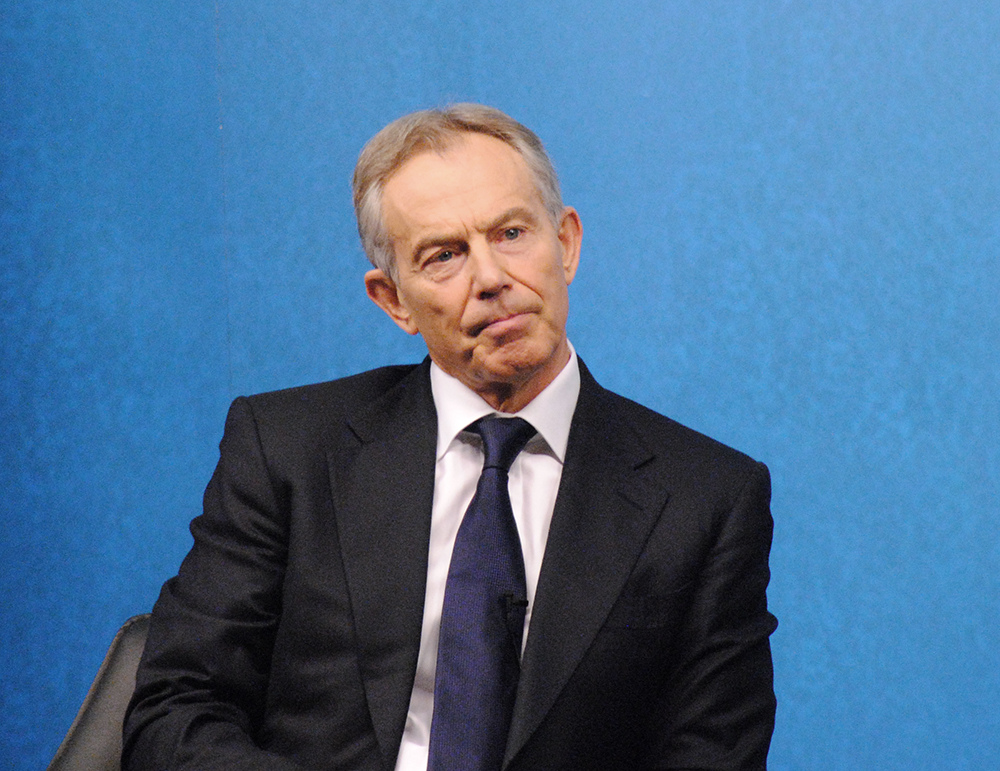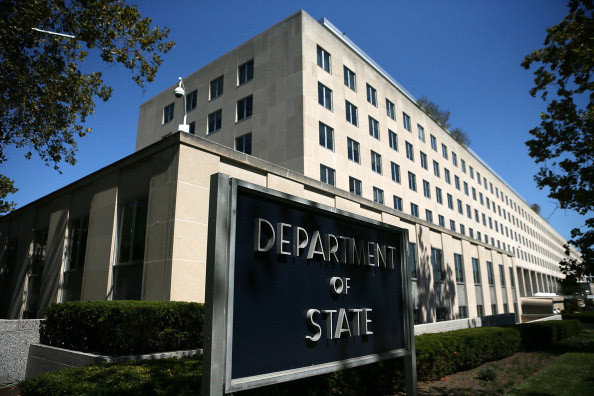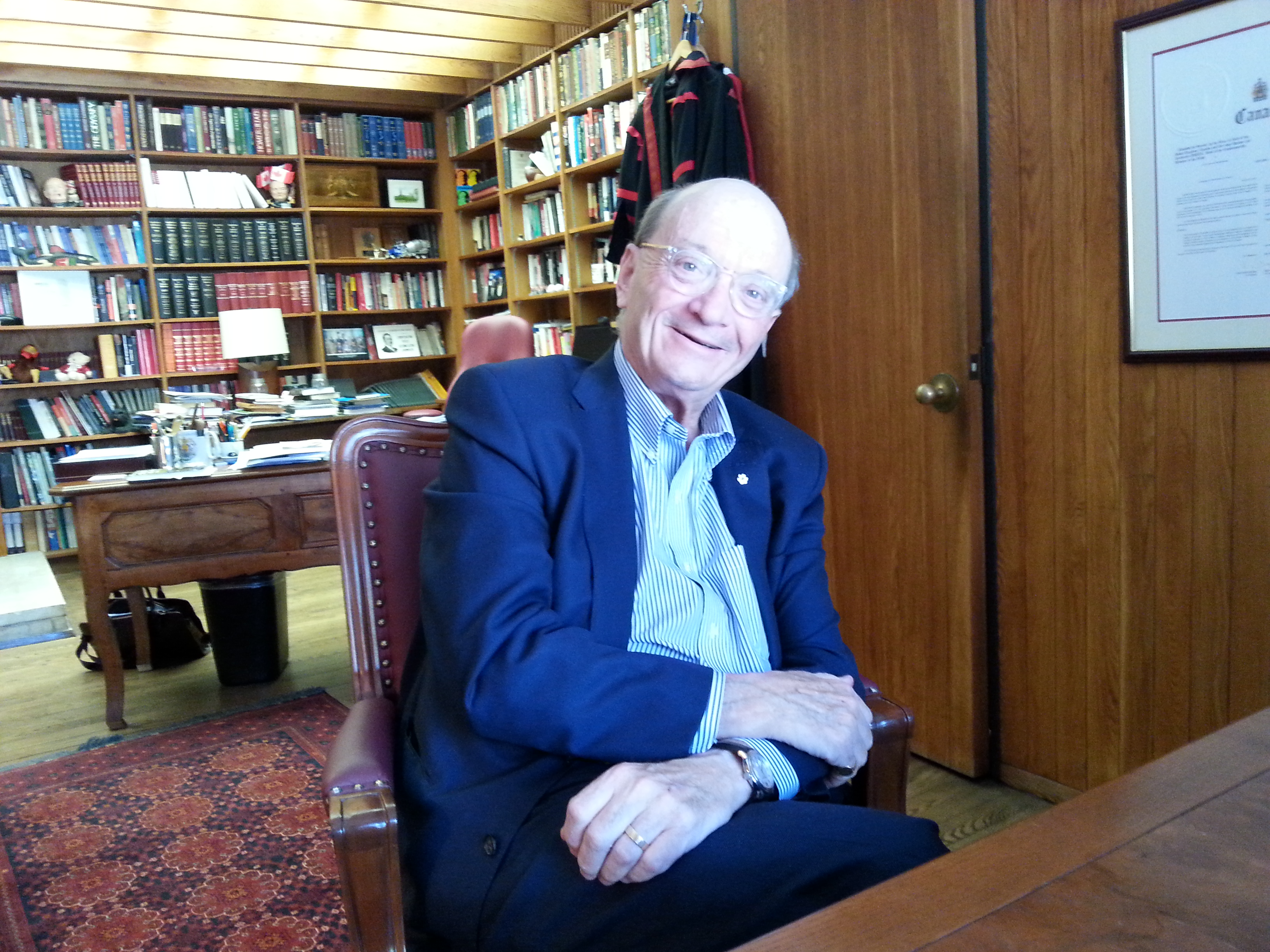Tony Blair, Gerhard Schröder and Bill Clinton,. Former heads of state of G8 economies and advocates of the ‘Third Way’. The Third Way aims to reconcile right and left wing politics by advocating a varying blend, or amalgamation, of right-wing economics and left-wing social politics. In effect, it is a re-imagining of the place of the state within the global economy achieved by contrasting interventionist policies, popularized by Keynesian economics, with the immergence of economic liberalism and free market de-regulation. This latter approach, popularized by Ronald Reagan and Margaret Thatcher, saw spectacular popularity during the 1980s in response to the western oil shocks of 1979 and stagnant economic growth.
The Third Way, referred to as “democratic capitalism” by Tony Blair, saw its rise during the mid-1990s and early 2000s under US President Bill Clinton and British Labour Prime Minister Tony Blair. Both heads of state worked to build more ‘inclusive’ models of capitalism in which access to social services was coupled with promotion of entrepreneurship, enterprise growth and middle-class wealth creation. Economically, Prime Minister Blair believed in raising taxes in order to support extensive social services, the creation of a national minimum wage, and significant investment in education. He did however also believe in several of the trappings of classical Thatcherism. He supported the importance of market forces by reforming employment laws to reduce the power of trade unions, lowering individual and business tax, and privatizing various large government assets. The Clinton and Blair governments understood the importance of balancing often seemingly competing interests. For former Australian Labour Prime Minister Kevin Rudd, speaking in 2003, “parties of the centre left around the world are wrestling with a serious challenge – the creation of a competitive economy while advancing the overriding imperative of a just and fair society.”

In contemporary politics, the Third Way has seen resurgence under Italian Prime Minister Matteo Renzi. Much like Blair in the United Kingdom, Renzi has returned the left to power after nearly two decades of exile. The fractured and factional Italian left suffered under the Berlusconi years, and was criticized by observers for not offering a tangible alternative to the boisterous Berlusconi. Renzi borrows a precise model, learned from Blair and Clinton, which advocates progressive reform of the traditional and archaic ideologies of the Italian political left and right. Renzi eschewed these left and right trappings in favor of a new middle, which prioritizes economic and political progress above traditional political ideology. For Renzi, it is a strange mix of liberal economic policy and private enterprise mixed in with populism. On one side, he will attack the long-held privileges of trade unions, while on the other, attack bankers, industrialists and the ‘moral transgressions’ of the capitalist system.
Likewise, issues of justice are important to articulate in order for the Third Way to succeed. Clearly defined ideas of justice, equality and morality must be present in order for economic policy to match the social needs of society. Assigning arbitrary values, based on the will of one particular group or another, cannot adequately combine political and economic policy in order to achieve the balance necessary for Third Way economics to be effective. The necessity of justice in the economy ensures that all sections of the labour market have equal access, opportunity and full participation within the free market as both labourers and capital owners.

One of the theory’s main architects, London School of Economics professor Anthony Giddens, claims; “the Third Way rejects top down socialism just as it rejects traditional neoliberalism”. Reformist governments can no longer rely on the habitually statist social and economic programs in the face of powerful global financial forces. A phenomenon like globalization makes these traditional approaches ‘not fit for purpose’ in the 21st century. Likewise, market forces can fail the people of a state requiring correction or re-calibration.
Criticized by both left and right as ‘appealing to everyone and no one simultaneously,’ the Third Way faces serious challenges to its place in international politics and economics. Challenges from extremists both right [read: France’s Front National] and left [read: Greece’s Syriza] threaten to derail any solidified success of Third Way governments. Regardless, the Third Way offers an interesting moral, economic and political alternative to traditional styles of leadership and governance.




